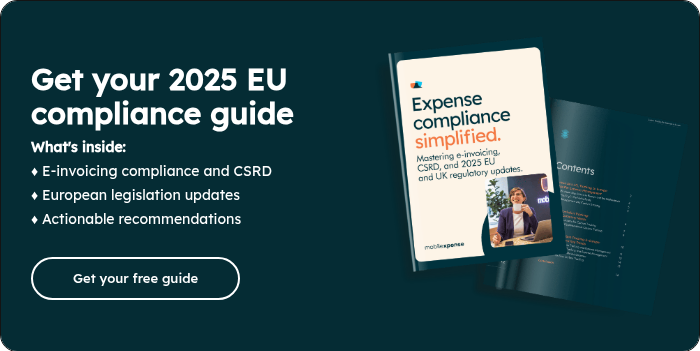Introduction: 2024 at a glance
2024 has been a year of change for businesses in the UK.
In the spring, we learned what many had suspected, 2023 had quietly ushered in a recession. Economic growth had faltered for two consecutive quarters in the second half of the year. This downturn was officially confirmed in the spring of 2024, as noted in Sky News’ review of the year.
Looking ahead: 2025 trends
As we look toward 2025, there’s a renewed sense of stability and opportunity.
Notably, workplaces saw a significant shift back to pre-pandemic norms. Companies like Amazon and Meta have ordered staff to return to the office full-time. This is sparking debates about productivity, employee satisfaction, and compliance in managing hybrid vs. traditional work setups.
This trend, noted by Startups.co.uk, shows the pressure on businesses. They must adapt to new expectations and stay efficient.
Due to these transformations, compliance has taken centre stage. Businesses must work harder to balance:
- Evolving workplace dynamics
- Stricter regulations
- Sustainability goals
From updates in per diem allowances to advisory rates for electric vehicles, 2025 promises to be a year where getting compliance right will be crucial.
Per diem in 2025
What is the per diem meaning?
“Per diem” translates from Latin to English as “per day”. Fiscally, a per diem is a daily allowance that employees receive from their employers to cover expenses such as accommodation, meals and incidentals incurred while on a business trip.
Per diem rates, or daily allowances, vary depending on the employee’s “home base” and the duration and destination of travel.
While most countries allow per diems for traveling employees, the maximum tax-free amounts and regulations vary.
Per diem in the UK for 2025
In 2025, the UK continues to use “subsistence allowances,” with no changes announced so far from 2024. These allowances remain as follows:
- £5 for qualifying travel of 5 hours or more
- £10 for qualifying travel of 10 hours or more
- £25 for qualifying travel of 15 hours or more and where travel continues past 8 pm.
- Additional allowance: Up to £10 per day may be added for trips lasting over 5 hours if travel continues past 8 pm.
Deductions for meals not paid by employees also remain unchanged:
- £5 for breakfast
- £5 for the 5-hour meal rate
- £10 for the 10-hour meal rate
- £15 for the late evening meal rate
Managing these allowances manually can be time-consuming and prone to error.
Mobilexpense has automated tools that help businesses set clear rules for per diem rates. This ensures accurate calculations and easy reimbursements for employees.
Mileage Allowance Payments (MAPs)
MAPs or Mileage Allowance Payments are paid to employees if they are using their private vehicle for business journeys. In line with the HMRC advisory fuel rates, businesses must ensure their reimbursement policies align with current tax rules.
Tax: rates per business mile:
|
|
First 10,000 miles |
Above 10,000 miles |
|
Cars and vans |
45p (40p before 2011 to 2012) |
25p |
|
Motorcycles |
24p |
24p |
|
Bikes |
20p |
20p |
Find more detail by visiting Expenses and benefits: business travel mileage for employees' own vehicles
Advisory mileage rates for electric and hybrid vehicles
From 1 December 2024, the advisory electric rate for fully electric company cars is set at 7 pence per mile. This change reflects the increasing emphasis on sustainability.
This rate is calculated based on domestic electricity costs and average vehicle efficiency, incentivising businesses to adopt greener practices.
Hybrid cars, on the other hand, are treated as either petrol or diesel vehicles, with the following updated rates:
Petrol and LPG rates per mile (from 1 December 2024) for business journeys:
- 1400cc or less: 12p (Petrol) | 11p (LPG)
- 1401cc to 2000cc: 14p (Petrol) | 13p (LPG)
- Over 2000cc: 23p (Petrol) | 21p (LPG
Diesel rates per mile (from 1 December 2024):
- 1600cc or less: 11p
- 1601cc to 2000cc: 13p
- Over 2000cc: 17p
Electric rate per mile (from 1 December 2024):
- 7p
For a detailed overview of expenses and benefits in the UK, visit this blog by gov.uk.
How this affects UK businesses
The evolving trends in compliance directly impact UK businesses. For example, how they manage employee travel expenses, adapt to new workplace regulations, and align with sustainability goals.
Policies that seemed sufficient a year ago may now fall short of compliance. This puts British businesses at risk of fines or employee turnover. Staying informed is no longer optional—it's essential.
This is where automated expense management solutions like Mobilexpense step in to simplify compliance.
By automating the tracking of expenses such as mileage, per diems, and employee reimbursements, Mobilexpense ensures businesses can effortlessly align with evolving compliance requirements.
Simplifying compliance with digital tools
Tracking mileage accurately for compliance and reimbursement can be challenging. This is made more difficult when rates vary by engine size and fuel type.
Mobilexpense’s automated mileage tracking tools help employees log trips easily. They include compliance checks on expense reports to ensure adherence to company policies.
Additionally, its integrated reporting features provide businesses with insights into travel patterns, helping them optimise expenses and meet sustainability goals.
For further details, refer to the UK Government’s guidance on advisory fuel rates.
Share this
You may also enjoy
these related stories

Optimise Employee Expenses with Business Credit Cards

Understanding Proof Of Purchase For Business Expenses in 2025

7 Reasons Why Travel Managers Choose Mobilexpense in 2025




